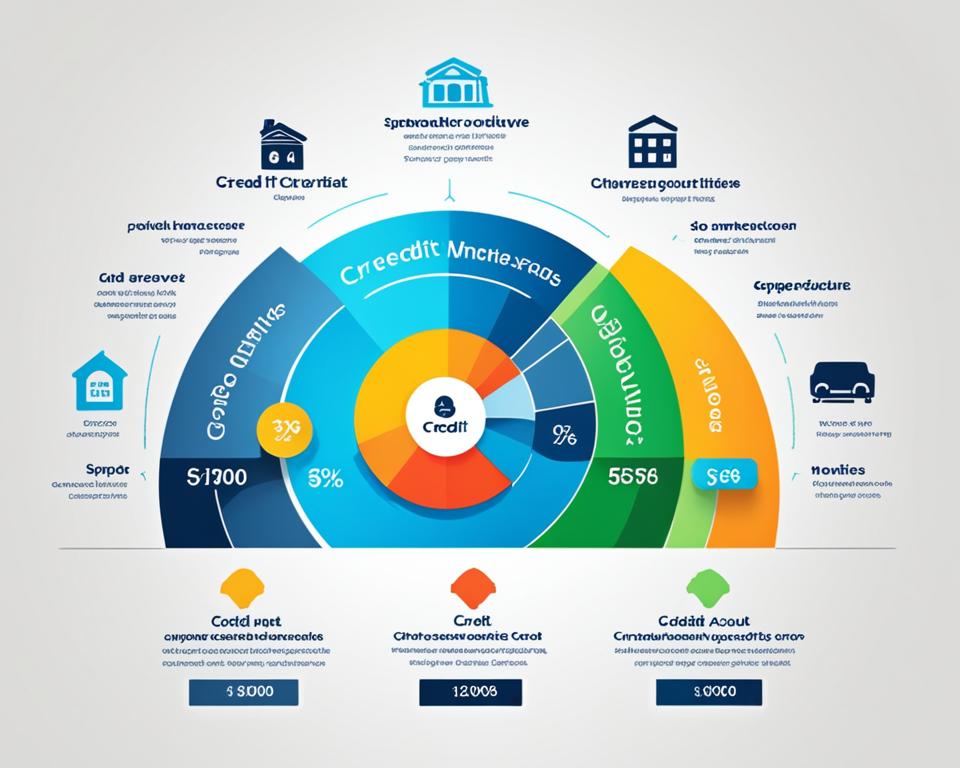In the intricate world of credit, the value of a co-signer cannot be overstated. Co-signers afford crucial support, paving the way for individuals to access financial opportunities that might otherwise remain just out of reach. Understanding the importance of co-signers and the potential co-signer benefits is essential for anyone looking to leverage another’s credit in the journey towards financial stability. The dual-sided sword of co-signing can serve as a stepping stone for increased credit access while also holding significant sway over a co-signer’s credit health. Treading carefully, co-signers offer more than just a signature; they offer a testament to one’s trustworthiness and a booster to credit-building endeavors.
Moreover, becoming a co-signer extends beyond mere support—it introduces a layer of accountability and encouragement for responsible financial behaviour. It’s incumbent upon co-signers to assess the situation with prudence, as their co-signer credit support could either be a balm to credit scores or a blow, should the primary borrower falter. As such, the decision to co-sign demands a deliberation of potential outcomes and the willingness to step in when needed.
Key Takeaways
- Co-signers can significantly influence another’s ability to secure loans and credit cards.
- Effective co-signing leads to mutual benefits, bolstering the credit of both the co-signer and the primary borrower.
- The risk involved for co-signers hinges on the financial reliability of the primary account holder.
- Understanding the differentiation between co-signers and authorized users is crucial given their distinct legal and credit implications.
- Co-signing requires weighing the potential consequences on personal credit scores and relationships before proceeding.
- Though fraught with potential risks, co-signing remains an invaluable tool for credit support when done judiciously.
Understanding Co-Signing and How it Works
The concept of co-signing plays a strategic role in the financial realm, especially for those embarking on the journey of credit building. Serving as a co-signer involves more than lending one’s good name; it signifies a commitment to back another’s financial obligations should the need arise. Here, we unlock the intricacies of co-signing and its influence on both parties’ credit fortunes. Whether striving to fathom the fundamentals or discerning the risks and duties involved, grasping this collaborative financial endeavor is imperative for anyone engaging in the credit market.
The Basics of Co-Signing
At its core, co-signing refers to a supportive financial act where an individual with established credit agrees to share the responsibility of another’s debt. This mutual pact is frequently sought when primary borrowers lack adequate credit history or score to secure financing independently. By leveraging the co-signer’s credit reliability, borrowers gain access to loans or credit lines that would otherwise be unattainable, positioning co-signers as pivotal collaborators in credit building with co-signers.
The act of co-signing is not merely a gesture of trust but also an entry into a binding agreement that can significantly affect one’s credit profile. A co-signer’s stamp of approval does not only uphold the primary borrower’s financial aspirations but also reflects on the co-signing credit impact they might experience. It represents a shared credit pathway, where the performance of one influences the credit narrative of the other, underscoring the role of co-signers in building credit.
Risks and Responsibilities for Co-Signers
Delving into the legalities, co-signing fastens a financial safety buckle for lenders by ensuring that the co-signer will settle the debt if the principal borrower defaults. This guarantee, while beneficial, is replete with inherent risks. Infrequent yet crucial scenarios materialize when co-signers face credit score dips due to missed payments or escalated debt recoveries. Recognizing these potential consequences is central to any co-signer’s decision-making matrix, where the calculation of chance veers towards the optimistic end of timely repayments and credit mix enrichment.
However, the fulcrum balancing the benefits and obligations is delicate. Co-signers must confront the possibility of credit building with co-signers morphing into credit reconstruction if things go awry. They are privy to the entire spectrum of financial outcomes, from witnessing burgeoning credit profiles to enduring the strains of default-induced repercussions—foreboding the importance of vigilance and risk assessment before embarking on the co-signing endeavor.
| Borrower’s Action | Impact on Co-Signer’s Credit | Responsibilities of Co-Signer |
|---|---|---|
| Timely Repayment | Potential Credit Score Boost | Maintain Oversight and Support |
| Late Payment | Negative Reporting to Credit Bureaus | Step in to Rectify Delays |
| Loan Default | Credit Score Decline | Legal Responsibility for Debt |
| Diversified Credit Mix | Credit Score Improvement | Ensure Managed Debt Load |
As custodians of their own credit prosperity, co-signers must meticulously deliberate the full breadth of their responsibilities. Not only do they stand as guarantors but also as stewards of financial dependability, encapsulating the true essence of The Role of Co-signers in Building Credit. In the ever-evolving landscape of personal finance, the vigilant co-signer is both a benefactor and gatekeeper — one who magnifies opportunities for others while conscientiously guarding their own credit domain.
The Role of Co-signers in Building Credit
In the realm of personal finance, a co-signer takes on an essential role, particularly when it involves building credit. The responsibility of a co-signer stretches far beyond simply lending a helping hand. It is about shouldering a strategic contribution that can immensely impact the financial and credit trajectory of the borrower. Often, individuals with thinner credit files or those yet to demonstrate robust creditworthiness find themselves in need of a credit boost. This is where co-signers step in, offering up their own credit accomplishments as a foundation upon which others can build.
When an applicant’s credit history does not sufficiently meet the stringent requirements set by lenders, a co-signer’s robust credit standing can tip the scales in the applicant’s favor. This arrangement takes co-signing for a credit boost from being a mere formality to a pivotal decision that can unlock doors previously closed to the primary applicant. The lender, in this partnership, considers the financial reputation and history of both parties, thereby allowing for a pooled credit influence that could lead to improved lending terms and a stronger bargaining position for the borrower.

Yet, co-signer responsibility does not come lightly. It entails a readiness to be accountable for the debt if the primary borrower falters. This is a dual-faceted commitment, both safeguarding the borrower’s ability to access credit and subjecting the co-signer to financial vulnerability. That is why one of the most prudent steps a prospective co-signer can take is to make a thorough assessment of the borrower’s financial behavior and potential to honor their obligations.
For those who stand as co-signers, their credit scores can also receive a boost, thanks to the regular, on-time payments made by the primary borrower. This can be particularly advantageous for co-signers who wish to enhance their own credit mix and payment track record. However, those considering the role must also acknowledge the risks at stake: any delinquency or default on the loan from the borrower’s side can cast a long shadow on their own credit report. Thus, co-signing for credit boost and subsequent growth is a decision that requires a circumspect approach.
The pathway of co-signing is, without a doubt, a prominent tool in the sphere of credit building. It presents a means for many to achieve financial goals that seem just beyond their grasp. With the right execution of co-signer responsibility and mutual trust, co-signing can indeed emerge as a win-win scenario, fostering credit fortitude and standing testament to the collective power of shared financial integrity.
Positive Effects of Co-Signing on Credit Scores
Embarking on the journey of credit building with co-signers can yield substantial advantages, particularly for those working to develop a robust credit history. The fundamental act of co-signing, when carried out with conscientiousness, has the potential to bolster the credit scores of both the co-signer and the primary borrower. An analysis of how this arrangement affects credit ratings reveals the dynamic nature of credit support and its impact on the financial health of all parties involved.
Maintaining Timely Payments: A Boost for Both Parties
One of the most critical components in the architecture of credit scoring is payment history, making the role of on-time payments in credit building with co-signers an indisputable accelerator of financial credibility. When the primary borrower consistently meets their payment obligations, not only do they earn the trust of lenders but also reinforce the credit reputation of their co-signer. This collaborative credit building exercise is a testament to mutual financial diligence and punctuality.
The Long-Term Benefits of a Paid Loan
A fully paid loan punctuated with consistent, on-time payments stands as a beacon in the credit reports of both the primary borrower and the co-signer. Such a completed financial cycle is indicative of responsible credit management—a quality that lenders hold in high regard. This record of financial steadiness contributes significantly to enhancing the co-signer’s creditworthiness, reflecting the long-term benefits that arise from fulfilling a co-signer’s commitment to credit collaboration.
Navigating the Pitfalls: When Co-Signing Damages Credit
The act of co-signing can serve as a valuable endorsement, offering a means for credit building with co-signers. However, it is not without potential pitfalls. Missteps can lead to credit damage, not just for the borrower but also for the co-signer. It’s crucial to understand the areas of concern and the repercussions that co-signers might face, emphasizing the significant co-signer responsibility required when helping someone else build their credit.

Late Payments and Their Consequences on Credit
One of the most pressing concerns for a co-signer is the risk of late payments. When a payment on a co-signed account is more than 30 days overdue, it can not only hurt the borrower’s credit score but also the co-signer’s. Such negative items, once reported to credit bureaus, become part of a co-signer’s credit report, reducing their creditworthiness in the eyes of future lenders and creating an unwanted stumbling block in the journey of credit building with co-signers.
Debt Recovery Actions and Your Credit Report
In the unfortunate event of a loan default or if an account is sent to collections, a co-signer’s credit report will likely reflect these serious credit infractions. The ramifications of debt recovery actions, such as repossessions or collections, can leave indelible marks on a co-signer’s credit history. With potential effects lingering for up to seven years, these marks starkly illustrate the long-term impact that co-signing responsibilities can have on an individual’s financial standing.
| Issue | Impact on Borrower | Impact on Co-Signer | Duration of Impact |
|---|---|---|---|
| Late Payments | Credit Score Drop | Possible Credit Score Drop | Up to 7 Years |
| Account Sent to Collections | Severe Credit Damage | Severe Credit Damage | Up to 7 Years |
| Vehicle Repossession | Credit Score Decline | Credit Score Decline | Up to 7 Years |
| Debt Recovery Legal Actions | Potential Legal Consequences | Potential Legal Consequences | Varies |
Co-signer vs Authorized User: Distinct Credit Implications
When exploring the avenues of credit assistance, understanding the differences between co-signing and being an authorized user is vital. These roles significantly influence credit scores, yet they carry distinctive responsibilities and impacts on the credit profiles of those involved.
As a co-signer, an individual undertakes a legal guarantee to repay a debt should the primary borrower default. This role carries considerable weight in terms of co-signing credit impact, as the co-signer’s credit score can be affected positively or negatively by the borrower’s financial actions. On the other hand, an authorized user is someone who uses a credit account but isn’t legally responsible for paying the debt accrued on that account.
- An authorized user typically benefits from the primary account holder’s credit activity without the obligation of debt payment.
- A co-signer, however, accepts the financial duty to fulfill debt payments if the original borrower is unable to, directly tying their credit to the borrower’s fiscal behavior.
This shared responsibility makes co-signing a more risk-laden commitment, which can lead to co-signer benefits if the primary borrower remains in good financial standing but can also pose significant risks.
| Role | Credit Report Impact | Legal Responsibility | Risk | Potential Benefit |
|---|---|---|---|---|
| Co-signer | Credit score affected by borrower’s actions | Legally bound to repay the debt | High if the borrower defaults | Improved credit if borrower is diligent |
| Authorized User | Can benefit from account holder’s good credit | No legal obligation to pay the debt | Minimal, depends on primary’s credit management | Increased credit score with responsible primary user |
Therefore, the decision to become a co-signer should be weighed with gravity, as it intertwines your credit fate with another individual. Balancing the co-signing credit impact and the potential co-signer benefits requires meticulous analysis of both the borrower’s financial reliability and the implications for the co-signer’s personal credit history.
Ultimately, whether to become a co-signer or an authorized user is an individual decision that should align with one’s financial readiness to accept the potential credit changes that come with each designation.
Critical Considerations Before Becoming a Co-Signer
Co-signing a loan or credit application is a gesture of trust and an assurance that carries weighty financial implications. Recognizing the importance of co-signers within the credit system is just the first step. As someone considering this role, it’s paramount to reflect on the responsibility involved. This includes understanding the financial habits of the primary borrower and considering how the decision to co-sign could resonate through your financial landscape.
Assessing the Borrower’s Reliability
Meticulously evaluating the borrower’s reliability is a cornerstone of co-signer responsibility. This means delving into their payment history, current financial stability, and future income reliability. Are they disciplined with their finances? Do they have a stable job? Examining past behavior can offer insight into their likelihood of fulfilling payment commitments. Essential to this assessment is an open and honest discussion about their financial situation and expectations surrounding the co-signing agreement.
Impact on Co-Signer’s Credit and Finance
Becoming a co-signer intertwines your credit health with that of the primary borrower. Potential increases in your debt-to-income ratio could make your future credit applications more challenging. Moreover, if defaults occur, they could lead to legal consequences for you, including wage garnishment or liens on your assets. Such incidents underscore the co-signer responsibility and the need for a comprehensive understanding of the risks. Always remember, the assistance you’re providing goes beyond the short-lived joy of approval – it’s a commitment that can substantially affect your financial journey.

Steps to Protect Your Credit as a Co-Signer
In entering a co-signing agreement, the strategic goal for many is co-signing for a credit boost, ensuring that their generous support doesn’t backfire on their financial profile. Co-signers play a pivotal role, but it’s imperative to navigate this role with a safety net firmly in place. Protecting personal credit demands proactive measures and an environment of clear communication and stringent oversight. Co-signer benefits are manifold, yet vigilance remains the co-signer’s best ally.
Monitoring the Primary Borrower’s Payment Activity
Monitoring a primary borrower’s payment activity is not about doubt but about protecting mutual interests. As a co-signer, staying informed on the account’s standing allows for preemptive actions should any red flags arise. It’s not merely oversight; it’s a shared commitment to the successful management of credit. Regular check-ins and transparency can keep the credit building on an upwards trajectory, and in circumstances where missing payments loom, co-signers can intervene promptly to rectify the situation.
The ripple effect of a single late payment can tarnish the credit reports of both the borrower and the co-signer. Hence, consistent monitoring becomes an essential component of the co-signing process, securing the credit integrity for both parties.
Setting Clear Expectations and Legal Boundaries
Setting clear expectations and legal boundaries isn’t just a formality; it’s about guarding the financial wellbeing of both co-signer and borrower. Agreements detailing the terms of responsibility, payment schedules, and scenarios of financial hardship should be in black and white to prevent any ambiguity. Co-signers must also be cognizant of the legal ties they are entering—understanding that their involvement holds as much weight as the primary borrower’s in the eyes of the law and the ledger.
A proactive approach entails having frank discussions with the borrower about the shared responsibilities and the importance of maintaining a pristine payment record. A legally binding document might seem like overkill in a relationship of trust, yet it serves as a testament to the seriousness of the commitment made by a co-signer.
| Action | Benefit | Risk Mitigation Strategy |
|---|---|---|
| Monitor Payment Activity | Ensures timely intervention and preserves credit score. | Set up alerts for payment due dates, and seek regular financial updates. |
| Set Clear Terms | Prevents misunderstandings and protects financial interests. | Create a written agreement outlining all responsibilities and consequences. |
| Legal Documentation | Provides a safety net for both parties in case of disputes. | Establish legal boundaries through contractual agreements or notarized documents. |
Embracing the task of co-signing embodies a commitment to assist someone in their financial growth. Yet, the guiding principle for a co-signer should always be to first fortify their own financial fortress. By taking these steps, co-signers align themselves with success and pave the way for a credit boost that benefits all involved.
Co-signer Benefits: Enhancing Credit while Helping Others
Offering co-signer credit support is not just a generous act of assistance; it’s a strategic decision that can enhance one’s credit while empowering others to reach their financial goals. The co-signing credit impact goes beyond the immediate effect of loan approval, extending into the realm of credit-building for both the co-signer and the primary borrower. By allowing individuals who might not otherwise have access to credit due to limited or no credit history to obtain loans, co-signers play a crucial role in their credit development journey.
Through this collaboration, when the primary borrower manages the account responsibly, making timely payments and maintaining good credit habits, the co-signer could see potential uplifts in their own credit score. This shared responsibility, when executed with diligence, fortifies the financial profiles of both parties involved. But to realize these benefits, the underlying trust and commitment must be met with an equally responsible and proactive approach to financial management.
The positive ripple effect that responsible borrowing can have underlines the importance of prudent selection by the co-signer. It is a step that can bring financial advancement to those within one’s network, significantly altering their prospects and demonstrating the transformative power of credit building with co-signers.
| Co-Signer Action | Primary Borrower’s Credit | Co-Signer’s Credit |
|---|---|---|
| Providing Credit Support | Opportunity for Loan Approval | Potential Positive Credit History Association |
| Encouraging On-time Payments | Strengthening of Credit Scores | Reinforced Personal Creditworthiness |
| Monitoring Account Activity | Increased Awareness and Financial Responsibility | Ability to Address Issues Proactively |
For those who step into the role of co-signer, it is essential to not only recognize the gravity of their decision but also to embrace the opportunity for personal credit growth. Being a co-signer is not simply a favor; it is an investment in another’s future and one’s own by serving as a crucial link in the credit building with co-signers chain. It highlights the spirit of collaboration and mutual advancement that is central to the financial ecosystem.
Ultimately, while caution and consideration are key, the act of co-signing holds the promise of mutual credit enrichment. The fulfillment derived from supporting another’s aspirations, coupled with the chance to cultivate one’s own financial standing, demonstrates the multifaceted co-signer benefits that extend well beyond monetary value.

Co-signing for a Credit Boost: Real Stories of Success and Caution
The journey of navigating credit is often paved with the goodwill of those willing to become co-signers, extending a lifeline to individuals striving for financial affirmation. A co-signer’s leap of faith has the power to elevate a borrower’s credit capabilities, showcasing the tangible co-signer benefits. Yet, it is a landscape dotted with cautionary markers that remind us of the formidable co-signer responsibility.
Real-world narratives bring to light the nuanced experiences of co-signing. From parents assisting their children in securing that first car loan to friends helping friends leapfrog over insurmountable credit hurdles, the stories are as varied as they are emotive. On one hand, there are accounts of co-signers leveraging their credit proficiency to bolster another’s credit landscape, resulting in mutually beneficial upticks in credit scores and deepened financial opportunities.
Conversely, the annals of co-signing also harbor tales of strained friendships and financial woes—stories where co-signers, buoyed by trust and optimism, watched their credit well-being unravel as their counterparts defaulted. It’s the dichotomy of co-signer responsibility: the possibility of a shared success or a shared setback.
Featuring an array of outcomes, the following table encapsulates snapshots of real co-signing outcomes, underscoring the importance of prudence and clear communication between co-signers and borrowers.
| Co-signing Scenario | Credit Outcome for Borrower | Credit Outcome for Co-signer | Notes on Relationship |
|---|---|---|---|
| Successful Car Loan Co-signing | Improved Credit Score | Positive Association in Credit History | Strengthened Trust |
| Co-signed Student Loan Default | Credit Score Damage | Credit Profile Strain | Relationship Severely Affected |
| Co-signing Help for Mortgage | Secured Home Ownership | Enhanced Credit Standing | Deepened Familial Bonds |
| Rental Co-signing Gone Awry | Eviction and Credit Downgrade | Credit Utilization Impacted | Frayed Bonds of Friendship |
The intersection where co-signer responsibility meets co-signer benefits is one frequented by trust, risk, and, ultimately, consequence. Transparency about one’s financial situation and clarity of the borrower’s payment strategy are paramount. Co-signing can represent a credit boost—a lift towards financial freedom—or it can be a descent into credit contrition, forever altering one’s relationships and fiscal structure.
As potent a tool as co-signing is, it beseeches a thoughtful approach, where the optimistic act of affixing one’s signature comes after meticulous consideration of all possible outcomes. It is within these real-world chronicles that the depth of co-signer responsibility is fully realized, drawn from the bold lines of success and the cautionary inks of adversity.
Legal Implications for Co-Signers: Beyond the Credit Report
The role of a co-signer often transcends the immediate financial aid provided to borrowers; it is accompanied by substantial co-signer responsibility extending into the legal domain. Those who decide to co-sign a loan or credit agreement are not merely lending their good credit standing—they are entering into a binding legal contract. This commitment places the co-signer in a position of financial obligation that could involve them in complex legal situations, should the primary borrower fail to meet the loan’s stipulations.
Understanding the co-signing credit impact is critical, but it is equally important to be cognizant of the legal implications that lie beyond. The scope of these responsibilities includes the full spectrum of the debt’s lifecycle, and importantly, remains unaffected by personal changes in the co-signer’s life, such as divorce or separation. These aspects elevate the co-signing decision to one of grave consideration.
The assumption of liability goes beyond merely affecting one’s credit report; it could embroil co-signers in the legal pursuit of debt recovery. In the event of a default, creditors may seek restitution directly from the co-signer, not only impacting their credit but potentially their assets and earnings. It is a stark reminder that co-signing can lead to legal entanglements that challenge one’s fiscal comfort.
| Legal Aspect | Implication for Co-Signer | Duration/Condition |
|---|---|---|
| Debt Obligation | Financial responsibility for entire borrowed amount | Until debt is fully paid |
| Recovery Actions | Potential legal involvement, including lawsuits | When borrower defaults |
| Divorce/Separation | Ongoing obligation despite changes in personal relationship with borrower | Irrespective of family court decisions |
| Impact on Future Credit | Increased debt-to-income ratio affecting future credit applications | As long as the debt exists |
Grappling with the legal consequences that accompany co-signing, it is incumbent upon potential co-signers to deliberate not only the immediate financial enablement but also the long-term ramifications they willingly shoulder. This underscores the significance of preemptive discussions about financial expectations and robust considerations for worst-case scenarios. Embracing the bounden co-signer responsibility transcends personal finance management; it becomes a legal enterprise that demands acute awareness and judicious decision-making.
Co-Signer Responsibility: Preparing for the Worst-Case Scenario
When embarking on the path as a co-signer, it’s prudent to consider both the potential rewards and risks associated with this critical financial decision. The role of co-signers in building credit is instrumental and laden with great responsibility. Co-signers must be aware that while their assistance can help establish and improve credit for others, they also face the possibility of facing worst-case scenarios that can impact their own financial health. In the credit landscape, the gravity of co-signer responsibility is magnified when adversity strikes, making preparedness paramount.
Dealing with Defaults: A Co-Signer’s Nightmare
A co-signer must be ever-vigilant for the potential default on a loan or credit line they have backed. Defaulting not only tarnishes the credit score of the primary borrower but equally impacts the co-signer, who is legally bound to fulfill the outstanding debt. Such defaults can escalate to credit score reductions, collection efforts, and even legal actions against the co-signer, driving home the significant co-signer responsibility in this financial partnership.
| Scenario | Co-Signer’s Risk | Collateral Damage |
|---|---|---|
| Borrower’s Payment Default | Financial Burden of Debt | Credit Score Damage |
| Loan Default | Legal Pursuit by Creditors | Asset or Wage Garnishment |
| Account Sent to Collections | Harassment by Collection Agencies | Long-term Credit Report Marks |
How Divorce and Separation Affect Co-Signed Credit
Divorce or separation can introduce complex challenges in the realm of jointly held credit. While personal relationships may end, the obligations of a co-signer typically persist beyond these life events. An individual’s co-signer responsibility does not cease with a divorce decree. Thus, co-signers who find themselves in these situations must be prepared for continual financial accountability, emphasizing the need for thorough upfront discussions about the capacity to meet financial obligations under changing personal circumstances.
| Life Event | Co-Signer’s Credit Impact | Legal Obligations |
|---|---|---|
| Separation | Remains Unchanged | Continued Debt Responsibility |
| Divorce | Potentially Negative | Unaffected by Family Court Rulings |
| Relationship Breakdown | Stress-Induced Financial Decisions | Legal Enforcement of Debt Repayment |
In light of these potential adversities, individuals must enter the co-signing process with open eyes—understanding the long-term nature of their commitment and the possibility of shouldering unexpected burdens. It is essential for co-signers to evaluate their circumstances and consider the lasting implications of their vital role in someone else’s credit journey.
Improving Credit Together: Strategies for Primary Borrowers and Co-Signers
Embarking on the journey of credit building with co-signers often necessitates a synergy between the primary borrower and the co-signer. Such a partnership is grounded in mutual interests—the borrower’s access to credit and the co-signer’s opportunity to aid in that goal while potentially enhancing their own credit. There are strategic methods that both parties can utilize to not only safeguard but also improve their credit standings.
Creating a Payment Plan
A solid payment plan serves as the cornerstone of successful co-signing for credit boost. It’s a blueprint that outlines how the borrower intends to handle the debt. This should be detailed and realistic, taking into account the borrower’s income and expenses. The co-signer, having a vested interest, should work collaboratively with the primary borrower to establish this plan, ensuring that it aligns with both parties’ financial situations and goals. Such planning facilitates timely payments, reduces the risk of defaults, and paves the way for both the borrower and the co-signer to build and maintain strong credit scores.
Benefits of Early Loan Repayment
Paying off a loan earlier than the agreed term can have substantial benefits for both the primary borrower and the co-signer. It not only reduces the interest payments over the life of the loan but also potentially provides a credit boost. Early repayment reflects positively on the borrower’s credit utilization and indicates to future lenders the borrower’s capability to manage and repay debts efficiently. For co-signers, this can mitigate risks sooner and potentially enhance their creditworthiness as well, fostering an environment in which credit trust can flourish.
| Strategy | Benefits for Primary Borrower | Benefits for Co-Signer |
|---|---|---|
| Joint Payment Plan | Structured approach to debt, reduced risk of default | Lower financial risk, shared control over debt management |
| Early Loan Repayment | Less interest paid, positive impact on credit score | Risk mitigation, possible credit score improvement |
By adopting these strategies, both primary borrowers and co-signers embark on a credit-building journey that can lead to tangible improvements in their financial profiles. It’s a demonstration of shared responsibility and proactive financial management that underlines the essence of credit building with co-signers.
Alternatives to Co-Signing for Credit Growth
For those apprehensive about the potential complications of co-signing, a wealth of alternatives are at their disposal, each offering a different avenue for credit enhancement minus the risks. These options preserve the importance of co-signers by offering support without the direct involvement that co-signing entails. As individuals navigate the credit landscape, understanding various methods to grow credit robustness independently becomes imperative.
Secured credit cards, for instance, provide a firm stepping stone towards credit maturity. Supported by a cash deposit that acts as collateral, these cards furnish a low-risk credit-building opportunity. They’re an ideal solution for those who prefer not to burden others with the potential financial liabilities of co-signing, yet seek to steadily escalate their credit scores.
Becoming an authorized user on a trusted individual’s credit card is another viable strategy. It enables one to glean the co-signer benefits without the associated risks, as the credit account’s primary holder retains payment responsibility. This relationship significantly drives the importance of trust and understanding between the account holder and the authorized user, affirming healthy credit growth as a shared objective.
For individuals who aim to fortify their credit without impacting personal relationships, employing a guarantor could serve as a secure alternative. Although similar to co-signing, a guarantor steps in only when the borrower defaults, providing a safeguard while also distancing themselves from the immediate fiscal responsibilities.
Each alternative demands thoughtful consideration from those wary of co-signing’s dense financial web. Careful selection based on one’s unique circumstances can prevent tangled credit and relational threads, aligning with the importance of co-signers in fostering healthy financial ecosystems.
- Secured Credit Cards: A deposit-backed path to credit independence.
- Authorized Usership: Benefiting from another’s credit without the full burden.
- Utilizing Guarantors: A distant yet secure backup for borrower defaults.
In conclusion, while co-signing can serve as a valuable tool for those in need, alternative routes to credit enhancement also stand ready to support individuals in their pursuit of financial growth. These alternatives reinforce the importance of co-signers by underlining their role not in terms of direct engagement but through their motivational spirit that drives others towards financial autonomy and wisdom.
Conclusion
The manifold nature of a co-signer’s involvement in credit agreements is undeniable—with their support extending far beyond financial assistance. The act of co-signing taps into a profound level of personal trust and professional reliability. As co-signers dispense valuable co-signer credit support, they navigate a landscape rich with potential for aiding others in building a sturdy credit foundation. A co-signer’s affirmative nod can be the very catalyst enabling someone to leap financial hurdles and secure futures once only dreamt of.
Nevertheless, the co-signing credit impact is a topic that demands attention, inciting co-signers to proceed with caution. More than an endorsement, co-signing embodies a fusion of hope and practicality, where financial excursions undertaken by the borrower resonate through the co-signer’s own credit narrative. In this delicate transaction, one must meticulously appraise the repercussions, ensuring the voyage fortifies credit for both the helmsman and the navigator. Co-signing forms a partnership that hinges on both individuals’ commitment to prudent, responsible financial management.
Thus, while the act of co-signing is often seen through a lens marked by its potential to nurture credit growth and manifest beneficial outcomes, it is crucial for co-signers to safeguard their credit standing. It’s a dual journey where rewards are conjointly reaped, underscored by the certitude that meticulous practices and informed risks pave the avenue towards success. In sum, the call to co-sign signifies a substantial trust in another—yet it is a trust that must be paralleled by an equal measure of vigilance, ensuring positive repercussions spiral from this conjoined financial expedition.
FAQ
What are the benefits of becoming a co-signer?
The primary benefits of becoming a co-signer include helping someone else secure credit, potentially improving your own credit score through their on-time payments, and diversifying your credit mix. Co-signing can be particularly beneficial when you support a borrower with solid financial habits.
How does co-signing work?
Co-signing involves agreeing to back someone else’s loan or credit application. As a co-signer, you pledge to the lender that if the primary borrower fails to make payments, you will be responsible for repaying the debt. This can make it easier for the primary borrower to get approved for credit.
What responsibilities does a co-signer have?
A co-signer is responsible for ensuring the debt is paid. This means if the primary borrower defaults, the co-signer must make payments to avoid negative credit implications. Co-signers also face legal ramifications if the lender decides to take action to recover the debt.
How can co-signing affect my credit score?
Co-signing can affect your credit score in multiple ways. If the primary borrower makes timely payments, your credit score can improve. However, if they miss payments or default, your credit score can suffer. In addition, taking on more debt as a co-signer could affect your debt-to-income ratio.
What are the risks of co-signing a loan?
The risks of co-signing include potential credit score damage if the borrower misses payments, legal and financial responsibilities for the debt, and personal relationship strains if repayment issues arise. Co-signers also may have limited borrowing capacity for their own needs due to the additional liability.
Difference between co-signer and authorized user: what should I know?
The key difference between a co-signer and an authorized user is the level of responsibility. A co-signer is legally obligated to repay the debt if the primary borrower defaults. An authorized user, on the other hand, can use the credit account but is not responsible for the debt.
How should I assess a borrower’s reliability before co-signing?
Before co-signing, evaluate the borrower’s financial stability, credit history, and habits. It’s important to discuss their plan for repayment and to consider whether you can trust them to manage the loan responsibly. Additionally, ensure you are prepared to cover the repayments if necessary.
How can I protect my credit as a co-signer?
To protect your credit, monitor the loan’s repayment status regularly, ideally by having access to the account. Maintain open communication with the borrower and set clear expectations and legal agreements for the loan’s repayment to prevent misunderstandings.
What are some success stories of co-signing?
Success stories typically involve borrowers who make consistent, on-time payments, thereby improving credit scores for both themselves and their co-signers. These successful arrangements often lead to the borrower building credit and the co-signer enhancing their credit profile.
What legal implications should co-signers be aware of?
Co-signers must understand that they are entering a legally binding agreement, responsible for the debt if the primary borrower defaults. This could involve legal actions for debt recovery, and issues like divorce do not absolve a co-signer from a joint debt responsibility.
How can primary borrowers and co-signers improve credit together?
By creating a solid payment plan and possibly considering early repayment, both primary borrowers and co-signers can work together to enhance their credit. This collaboration can set a disciplined financial path and create a positive credit-building experience for both parties.
What are some alternatives to co-signing for someone looking to build credit?
Alternatives include secured credit cards, credit-builder loans, or becoming an authorized user on another person’s credit card. These options offer the chance to build or improve credit without the potential risks that come with co-signing a loan.





